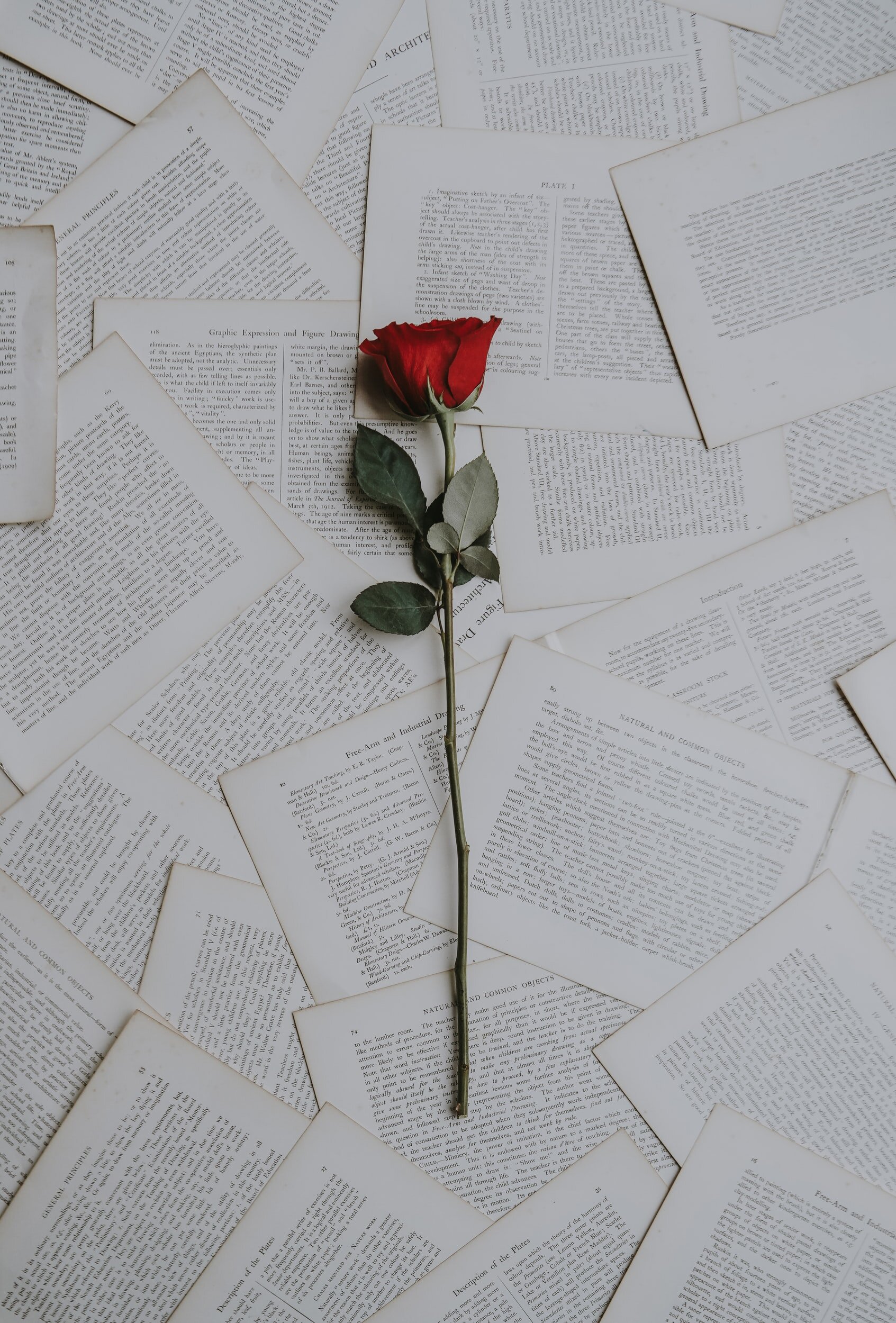谈 · 恋爱 Speaking of Love
“昭敏,在大学有谈恋爱吗?”
I am struck by the warmth in my Chinese language teacher’s question during one of my few visits to my high school. She calls me by my Mandarin name, Zhao Min. The vowel sounds beautifully round and the tone effortlessly crisp. She asks if I am seeing someone, if I am dating someone, if I am in love with someone while at university in England. I am free to interpret her question as I please.
谈 speak; 恋爱 love. Who knew three characters could come to life in so many ways and yet all lead to the same dead end.
“没有”,I shake my head. I have neither the language nor the heart to tell her that I feel undesirable. No one wants to speak of love with me.
A tender smile spreads across her face, while she utters a sentence I will remember for life, “在大学谈恋爱可以是个很美好的经验。”
Being in love at university can be such a beautiful experience.
The romantic in me clings on to this interpretation, wanting to believe I am worthy of this beauty, this phenomenon she speaks of.
Outside her window, snow begins to thaw in the light of the late morning sun.
***
At university, my tongue betrays me too much.
I stand in line at a sandwich shop, practising the various ways one could pronounce “Cajun.” By the time it is my turn, my courage evaporates. “Pesto chicken panini, please,” I order what I know.
I am asked by the girl next door if I need more time in my exams “because English is not your first language.” I wonder what she hears when I speak. I tell her it is my first language, and we walk to our rehearsal in smothering silence.
I am penalised because I have failed the rhyming round of a drinking game. Again. My jaw suddenly feels tight and heavy. I refuse to speak and take burning sips instead.
I learn that my vowel sounds are thin and harsh on the ears, incompatible with the French, German, and Italian songs we are singing. My throat seizes with horror when my singing teacher demonstrates my sounds, her voice tense and shrill. I become perpetually self-conscious.
In a Chinese eatery in New York City, I try to explain what the scrumptious 萝卜糕 carrot cake is to my a cappella group. As I struggle to translate the chewy texture of 糕, one girl scrunches up her nose in disgust. Someone else comments that she cannot eat Chinese food every day “because it’s too greasy.” I am voted as “most likely to make a racial excuse” the next day.
One year later, I am quizzed on sexual jargon in front of the entire group. My inexperience under scrutiny for all to dissect. “You’re so innocent!” they exclaim over and over again with each new vocabulary. I take the bait and let them feast on my helplessness.
No one wants to speak of love with me.
***
It is two days after the shootings in Atlanta. The skin around my eyes is raw and wrinkled. I am tired of crying, so I choose to talk about something else in therapy. We dive into how I’m coping with my traumas and how the physical space I live in is imprinted with searing memories of an abusive relative. It starts to get heavy again. I feel the tears coming, so I purse my trembling lips shut while my throat begins to tighten.
Deep breaths... Deep breaths...
“One thing you could think about… is how you can reclaim this space. What would that look like?”
I stare at the digital clock on our oven, trying to focus my gaze somewhere untouched by violence. I have no answers, only questions.
Can you reclaim memories of pain with love and beauty? Can you reconstruct a fractured sense of self with the tenderness of language? Can you speak of love on your own?
As a storyteller, how can I not try?
***
I am 18, with a large tub of 美珍香 猪肉松 Bee Cheng Hiang pork floss cradled in my arms. I form my first university friendships at international orientation, of which I only remember learning the difference between “chips” and “crisps.” There are three of us huddled together in a dormitory room, sharing five cities of origin between us. We joyfully shovel the pork floss in our mouths, eyes closed as we let the comforting blend of sweet and savoury wrap around our tongues while existing in a strange new place.
I am 19 and crouched beneath my study table, trying to cook my first round of white rice in my newly-bought rice cooker from Argos. It is against the rules, but I never thought I could miss the fragrance of white rice this much. The light indicates that the rice is done, so I gingerly raise the rice cooker’s lid. Steam rises from a glistening bed of miniature oval pearls and condenses on the underside of my table while the smoke detector remains silent. An absolute triumph!
I am 20 and apologising to two childhood friends visiting from Paris and Edinburgh. I tell them I don’t have a kitchen. I can only cobble together a humble meal of 粥 congee in my rice cooker for them, using mushrooms, dried scallops, carrots, egg, and soy sauce. Their eyes widen with glee, and they gush, “Is like mother!”. My heart is more full than they can ever know as we sit cross-legged and laughing in front of the radiator, mushrooms floating merrily in the bubbling water of my trusty rice cooker.
I am 21 and falling hopelessly in love with a boy from Leeds. I greet his mother and his grandmother in Mandarin while taking in the scent and sounds of sizzling oil wafting from their kitchen. “小姑娘,坐一坐。” His grandmother calls me little maiden and beckons me to sit with her on the sofa. His mother presses a plate of piping hot 韭菜饼 into my hands, telling me “吃,吃!别客气! ” Eat, eat! Don't stand on ceremony! I bite into the chive pancake, and a familiar taste of home explodes in my mouth. The boy and I exchange knowing smiles as we tuck in. I am in trouble.
I am 23 and excitedly telling my friend’s mother how much I love 粥, and how I used to cook it in university. As I bid her farewell when leaving the party, she asks me to wait for her, and she brings me takeout boxes filled with 白粥 plain congee, 煎蛋 fried egg omelette, and 菜圃 pickled radish - all whipped up specially for me in the aftermath of our conversation. I almost cry as I step out of their London home, feeling the warmth of homemade Teochew cooking in both hands.
I am 25 and soaring steadily in love with a man from Honolulu while living in Beijing. We gorge on 兰州拉面 Lanzhou noodles, sneak into my workplace next door to grab durian ice cream from the office freezer, and laugh over Singaporean expressions we both grew up on. I ask him what his favourite food in Beijing is. He replies without missing a beat: “串.” The classic meat skewer. I smile and tell him it’s a great answer.
***
It is 3.30AM on a Sunday morning here in Honolulu, five days after I first learned of the Atlanta shootings. It has been eighteen hours since I last cried. The man who loves 串 is upstairs, asleep with one protective arm around our toddler. I am alone in our living room, filling the air with the music of my teenage idol 周杰伦 Jay Chou, reliving the sun-drenched nostalgia and innocence of my adolescence. It was a time before I knew what anguish was. Before I knew what resilience meant.
I wonder how my Chinese language teacher is doing, whether she’s asking another youth if they are in love. If they speak of love. I wish I could tell her that she was right and that she still is.
谈 · 恋爱。I never knew it could be so profoundly complex, wholesome, and magnificent.



